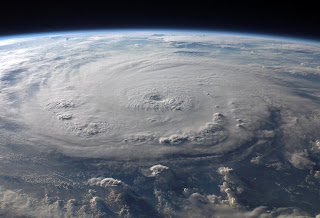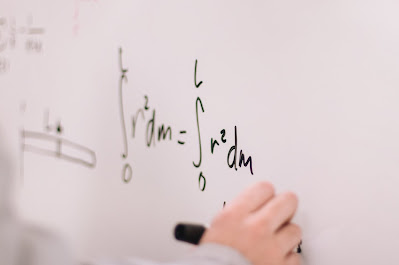CHEMISTRY
Chemistry
Chemistry is a physics
sub-discipline that studies the nature, composition, structure, and laws of
change of matter. The object of chemical research involves the
interrelationship between substances, or the relationship between substances
and energy. Traditional chemistry is often about the contact and change of two
substances, that is, the chemical reaction, or the process from one substance
to another. These changes sometimes require the use of electromagnetic waves,
where electromagnetic waves are responsible for exciting chemical action. But
sometimes chemistry doesn't have to be about reactions between substances.
Spectroscopy studies the relationship between matter and light, and these
relationships do not involve chemical reactions. To be precise, the research
scope of chemistry is nuclear-electronic systems including molecules,
electrons, ions, atoms, and atomic groups.
The word "chemistry",
if interpreted literally, means "learning of change". Chemistry
mainly studies the science of the interaction of chemical substances. Chemistry,
like the broader physics, is the basic science of the natural sciences. Many
people call chemistry "central science" because chemistry is the core
of some science disciplines, connecting physical concepts with other sciences,
such as materials science, nanotechnology, and biochemistry. Scholars who study
chemistry are called chemists. In the concept of a chemist, all matter is
composed of atoms or substances smaller than atoms, such as electrons, neutrons
and protons. But chemical reactions are carried out with atoms or atomic groups
as the smallest structure. Several atoms combine in some way to form more
complex structures, such as molecules, ions, or crystals. Contemporary
chemistry has developed many different disciplines, and usually every chemist
specializes in only one or two of them.
In middle school chemistry,
chemists call it general chemistry (German: Allgemeine Chemie, English: General
Chemistry, French: Chimie Générale). General chemistry is an introduction to
chemistry. General chemistry courses provide simple concepts for beginners to
get started. Compared to professional fields, they are not very in-depth and
precise, but general chemistry provides chemists with intuitive and graphical
thinking methods. Even professional chemists still use these simple concepts to
explain and think about some complex knowledge.
Etymology
The etymology of the word
"chemistry" in English comes in many ways. One theory is that it was
named after "alchemy". The word "alchemy" in English is
derived from "alkemie" in Old French and "al-kimia" in
Arabic, which means "the art of transformation." The word
"kimia" in Arabic comes from Greek. There is another saying that the
word "chemistry" in English is derived from the Egyptian word
"kēme", which means "earth".
In China, the word
"chemistry" first appeared in the journal "Liuhe Cong Tan"
published by the Mohai Library in 1857. Wei Liyali mentioned that Wang Tao
recorded the word "chemistry" heard from Dai Desheng in his diary. It
is generally believed that the word "chemistry" in Chinese was
invented when Xu Shou translated the English book "Chemistry".
The word "chemistry"
was introduced to Japan, replacing the original Japanese translation of
"She Mi".
Early human
understanding of fire
The earliest chemistry should be
regarded as human research on fire. For the people at that time, fire can turn
one object into another, so it became the most interesting phenomenon for
people to study at that time. Without fire, humans would not find the method of
refining iron and glass.
ALCHEMY
After humans discovered gold, a
precious metal, many people transferred to study how to turn other substances
into gold. From 300 to 1500 BC, alchemists all studied how to convert some
cheap metals into gold, so they accumulated observations and techniques related
to the extraction and processing of metals. Some alchemists' main job is to
make medicine, and there was also the so-called alchemy technique in China.
Before 2000, humans had widely used gold, silver, mercury, copper, iron, and
bronze. At that time, human civilization had made some achievements in
ceramics, dyeing, brewing, papermaking, gunpowder, etc. In terms of technical
experience, there has been some observation and literature accumulation on the
understanding of material changes.
Early Chemistry
Early chemists collected data on
many different substances. Before the 17th century, chemical achievements were
not large (combustion theory, alchemy), among them more accomplished ones such
as Robert Boyle. By 1750, chemistry was still mysterious and dominated by
incorrect theories. It wasn't until 1773 that Antoine-Laurent de Lavoisier
proposed the law of conservation of mass and explained the burning phenomenon
by redox reaction, overthrowing the phlogiston theory prevailing in the middle
Ages, and opened the road to modern chemistry; he Therefore, it is respected as
the "Father of Chemistry".
Then Dalton integrated the
knowledge of chemistry at that time and put forward an epoch-making atom theory
with his own experiments. Since then, some chemists have discovered a variety
of chemical elements, and later Mendeleev established the periodic table of the
elements to make the chemical horizon more complete. In 1901, the chemist Nobel
Established the Nobel Prize in Chemistry with his legacy in recognition of
those who have contributed to mankind in the field of chemistry.














Comments
Post a Comment